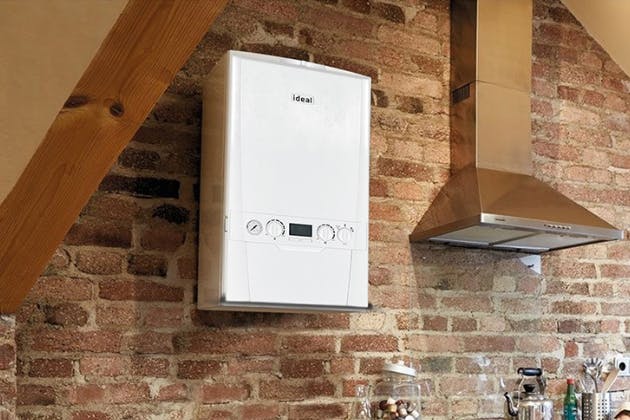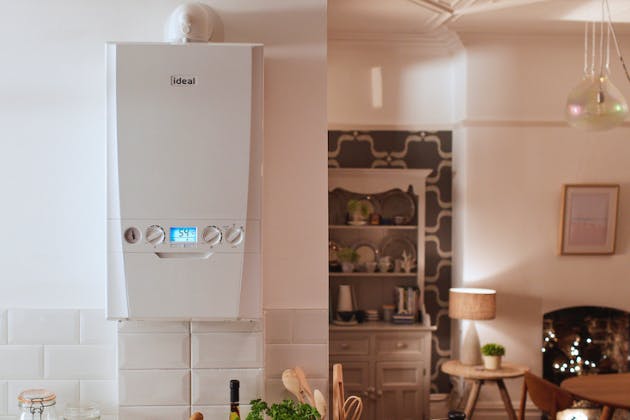We are aware that installing a new boiler requires a significant financial commitment, so choosing the kind and model of the boiler you want to install should be done very carefully which is why we have created the ultimate boiler guide to help you know everything you need to know about gas boilers.

Our Ultimate Boiler Guide
What are gas boilers?
The most common form of boiler in the UK is the gas boiler and it is linked to the gas network. The main distinction between gas boilers and other types of boilers is that gas is used to power them rather than electricity to heat the water.
Gas boilers have alternatives such as LPG, oil and electricity. Although each of these has a unique set of advantages and is a preferred option to those who are off-grid.
How do gas boilers work?
The core component of your central heating system is the boiler. It works by heating and circulating hot water to your home's taps, radiators, and underfloor heating.
Depending on the kind and design, each boiler has a different set of parts, but in general, these appliances burn a combination of gases under pressure to provide a reliable supply of heat for your home.
Types of Gas Boilers
Combi, regular, and system boilers are the three different kinds of boilers. Choosing the right one for you and your home is very important because each is suited better depending on your needs and requirements.
Below we go through each of these boilers and how they work.
Combi Boilers
Combi boilers don't need to be positioned next to any large tanks or cylinders and are small and inexpensive. Because of their emphasis on space-saving design, they are perfect for smaller residences with limited space.
Regular Boilers
These types of boilers are also known as conventional, heat-only, open-vent, or traditional boilers. Despite being the oldest form of a boiler, conventional boilers are now more dependable and efficient than ever thanks to technological advancements.
A conventional boiler must be installed together with feed and expansion tanks, a hot water cylinder, and the boiler itself, which is why it is very important to make sure you have enough space. The boiler warms the water before it is sent to hot water outlets or a hot water cylinder after a tank in the loft fills with cold water.
System Boilers
They are immediately linked to the mains and they store hot water in a cylinder. This enables them to handle increased demands for household hot water even if it does need extra room to be set up for the heating system.

How long does it take to install a boiler?
If you hire are fully trained and qualified heating engineer for a boiler installation they should be able to install a simple boiler switch within a day, for example replacing a combi boiler with a combi boiler.
However, if you are changing the type of boiler you currently have and the location it is placed in, then this will take a few days to install. The main reason for this is because there are other factors involved such as additional pipework. The best way to find out exactly how long a boiler installation will take is to ask a qualified heating engineer.
How often should a boiler be replaced?
Given that boilers typically last 10 to 15 years, we understand that this may not be your first purchase of one.
But you may also get A-rated boilers from high-end manufacturers that last for up to 20 years and often have longer manufacturer warranties.
Want to know more?
Our heating engineers are available throughout Gravesend, Medway and Dartford. Get in touch with our team by calling us on 07712 172171 and we will be happy to answer any questions you have about us and our boiler installation services.

